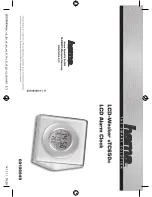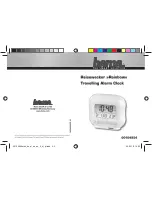
VESDA by Xtralis
VESDA VLC-400 Product Guide
www.xtralis.com
9
Figure 2-4: Field Wiring Connection
2.3.2
Cable Entry Ports
There are four cable entry ports on the right hand side of the detector, as shown in Figure 2-2. The cable entry
ports are 27mm diameter and supports cable diameters up to 18mm (¾in) with a suitable cable gland fitted
(cable gland is not supplied).
2.3.3
Air inlet port with air flow sensor
An air inlet port is located on the top of the enclosure (see Figure 2-2) to allow sampled air to enter into the
detector for analysis. An arrow points towards the port to identify the air inlet (see Figure 2-2). The air inlet port
is designed to accommodate a standard 25mm Ø OD pipe. The port is tapered to provide a positive seal for
the pipe.
An airflow sensor, located inside the air inlet port continuously monitors the airflow through the aspirator and
prompts the user when there is a reduction or an increase in the airflow.
The air inlet and exhaust pipes MUST NOT be glued to the detector ports.
Caution:
The inlet and exhaust port is fitted with a sealing plug for shipping to prevent accidental entry of
foreign objects. This plug MUST be removed for the detector to operate correctly whether the
exhaust piping is fitted or not.
2.3.4
Aspirator
The aspirator is a proprietary high efficiency air pump that draws in air through a network of sampling air pipes
and passes a small sample of the filtered air into the laser detection chamber. The rest of the air is exhausted
out through the port located at the bottom of the enclosure.
The aspirator runs continuously at a fixed speed.
2.3.5
Air Filter Cartridge
The air filter cartridge is located at the bottom left hand side of the enclosure and is secured in place by a
single recessed screw. The filter elements are housed inside a disposable cartridge and cannot be cleaned for
reuse. Refer to Section 9.2.1 on page 34 for details on replacing the air filter cartridge.
The sampled air from the environment passes through two stages of filtering within the air filter cartridge. The
first stage removes the large particles of dirt and allows the smaller smoke particles to pass into the detection
chamber for analysis. The second stage removes the sub-micron particles of dirt and passes very clean air
into the detection chamber to keep the optical surfaces clean.
















































